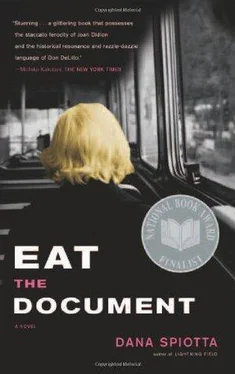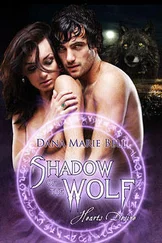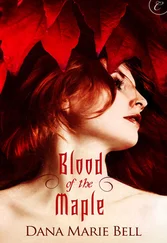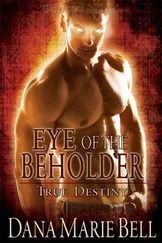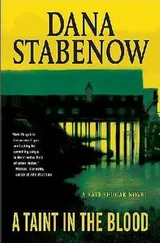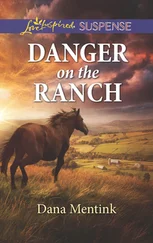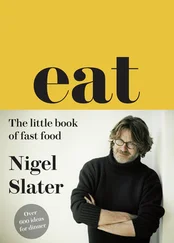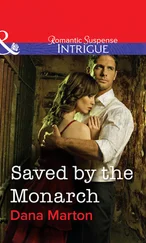Louise, I am Louise. It felt different taking someone else’s name instead of making one up. It was a deeper, meaner lie, somehow. The morbid origin of the name did affect her. Sometimes, though she knew this wasn’t what she should be thinking about, she thought of the baby Louise. She thought of the parents watching their baby in the hospital as she struggled to breathe, of her tiny, froggy legs and purple, balled fists. She even kept a copy of the infant’s obituary.
It took a year to build her new identity and assemble all the paperwork. After that, she had less to occupy her. One year turned into four. She cooked at a cafe in Marina del Rey. She rented a small apartment near the pier in Santa Monica. On her days off, Louise walked along the boardwalk or down Fourth Street. Some days she actually forgot where she was headed but kept walking anyway. On one occasion a man coming from the opposite direction walked straight into her. He didn’t stop but kept walking. His nonreaction to their collision bewildered her. She stood there, unmoving, staring at his back as he walked away. And then, maybe a week later, the same thing happened again. A woman walked toward her on the sidewalk in front of Ralph’s supermarket. She had the sort of unseeing stare that people wear in public. She didn’t sidestep when she got to Louise but walked into her, smacking her shoulder. Again, the woman didn’t stop walking or say anything to her. She kept going. This time Louise felt less disturbed. She almost laughed instead. Louise thought, It’s finally happened. I’m invisible.
She went on this way. Not visible really. A vapor.
If you don’t read the paper, time doesn’t move forward.
But she could see it in her hands — veins more visible beneath the skin — time passed. She didn’t read the news, but she kept the TV on all the time.
Raid. Kills bugs dead.
Aim. Fights cavities.
Oxydol. A better clean.
Then she met August. With his heavy, handsome face and very long black hair, which he kept pulled back in a tidy ponytail. He smelled slightly of coconut (which she later realized was suntan lotion) and strongly of tobacco. He bought her drinks and spoke to her in measured, soft tones. Gentle even. She didn’t mind his attention at all; in fact, what she felt was overwhelming gratitude. Who was she but a “speck in the cosmos”?
August kept a clean apartment. He owned a nice stereo and a new, large TV. He didn’t seem to care one way or another about who was president. He wanted her around all the time. She settled into cooking for him and the daily repetitions of an ordinary life. Laundry. Cleaning. Shopping. Why shouldn’t she enjoy being taken care of a little? The character of those first years as Louise was a swift and steady decrease in possibilities. But wasn’t that true of everyone? As time went by, wasn’t every life a kind of narrowing, a steady relinquishing of possibilities?
NASH FOUND Henry by the Incendiary Devices section of the Tactics bookshelf. He stood there until Henry looked up. Nash pulled Henry’s hand away until he could see the pamphlet Henry was reading. It was an ecoterrorist broadside titled “Using Explosives to Eliminate and Discourage Outdoor Advertising.” Nash grabbed it out of his hand.
“Can I have a word?”
“Of course,” Henry said. He followed Nash toward the back office, which was really just a large closet filled with books, invoices and catalogs. Henry sat on the only chair, and Nash leaned on the desk.
“I’ll get right to it. I don’t think climbing buildings in the middle of the night is such a great idea, you know?”
“Neither do I,” Henry said.
Nash smiled and folded his arms across his chest. “I know you’ve been destroying those billboards.”
“But those boards are ads for Nepenthex, which is made by Pherotek—”
“Yeah, I know. I figured that out, finally. They are part of Allegecom, which is the same company that put dioxin in everything from PVC pipes to Agent Orange.”
“That put dioxin in Agent Orange and kept it in for years even when they knew it affected humans. Even when they could have made it without dioxin, like Agent Blue. And these bastards also made various incendiary munitions, as I’m sure you are aware.”
“Naturally. A lot of companies made munitions.”
“Antipersonnel ordnance—”
“Yep. Designed to destroy humans and keep property intact. Check.”
“But these guys”—Henry’s voice got quite loud at this point—“they make the antidepressant that was prescribed for me specifically for the depression I have due to dioxin and combat trauma. It was actually designed to treat combat stress trauma, which they caused in the first place.”
Nash laughed, shaking his head.
“That would be very ironic, Henry, except for one thing: you were never exposed to Agent Orange or combat of any kind. Furthermore, and perhaps what’s even more important, no one knows why you are tearing down billboards. It is an illegible act. It changes nothing. And whatever else you are contemplating—”
“That corporate entity and its billboards are morally bankrupt,” Henry said. “That billboard is pornographic and offends decency.”
There was a knock. Sissy called from outside the door.
“Nash? There is no one watching the store.”
“Where’s Roland?”
“He’s gone.”
“I’ll be right out. Christ.” Nash put his hand on Henry’s arm. “I’m not unsympathetic, you know. I’ve no problem with property destruction per se. There is nothing sacred about property, particularly this sort. And although I think it would be nice, I also don’t think the gesture has to mean anything to anyone but you, or that it has to change anything for it to be worth doing.”
“You noticed, though, didn’t you? And they noticed. They had to replace their ad, didn’t they? Twice now.” Henry smiled.
“But it is dangerous,” Nash said. “And not just because you are an old, sick guy who shouldn’t be rappelling down buildings in the middle of the night. There is the possibility that destroying something changes you in unexpected ways. It’s channeling your worst dark self. It can inspire a wanton side, it can thrill and titillate. How can I put this? I think it’s cruddy for the soul. I think it makes you into a dick.”
Nash moved to the door. Henry put out his arm and stopped him.
“But I feel better. It makes the symptoms abate.”
“What do you mean?”
“I was exposed, in effect, or I am exposed, by whatever means. And I do take their pills. It is my irony and my insult. And when I destroy their signs — with a fierce but just heart, I swear — I feel better. I can actually have peaceful sleep.”
“Just don’t get carried away,” Nash said. “You’ve made your point.”
“It’s about my dignity.”
“Gotcha.”
“I feel restored by it.”
“But maybe…” Nash spoke while leaving the room. Henry followed him.
“Maybe what?” Henry said.
“Maybe it is the night ops on the billboard. Maybe you are right. Or maybe it’s their antidepressant that is making you feel better. Maybe it’s the Nepenthex.”
HER WHOLE life has become suspect. Not just the fact that she admitted to being in California dive bars with dissipated rock stars. Or her evasions about her life pre-1980s. No relatives, no friends, no mention of anything. But that’s not all — there are other issues once you start thinking on it. Once you have it in your head that someone close to you is hiding something, everything is suspect.
Читать дальше
